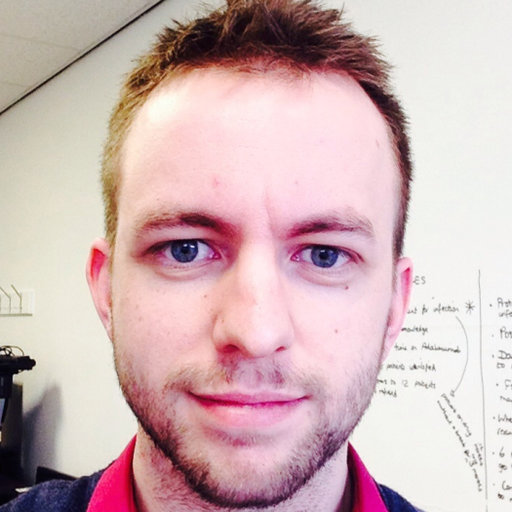DSSGx 2022 Public Lectures
|
24th June: Becoming closer to context and people:applied ethics in data scienceJosie Young |
 |
Abstract: Josie Young’s talk will cover two ethical risks of data science that often lead to harmful or poor quality data science products. She will also share tools to help you avoid these risks in your project, focusing on the building blocks that will set your work up for success.
Josie will close the talk by sharing the current approach to responsible AI at Microsoft and leave you with a list of resources to get you started.
Josie Young is part of Xbox’s Trust team, having previously spent two years at Ethics & Society partnering with product teams to build technology that embodies Microsoft’s responsible AI principles. Prior to moving to the US to join Microsoft, Josie worked for consulting group Methods, leading work to ethically and strategically deploy Artificial Intelligence in the UK public sector. Josie was named Young Leader of the Year at the 2020 Women in IT Awards (London) and included on the 'Rising Stars in AI Ethics' list at the 100 Brilliant Women in AI Ethics Annual Summit 2021
|
1st July: From decision making to communication Data Visualisation during the pandemicCagatay Turkey |
 |
Abstract:
Data visualisations play various key roles in the increasingly data-intensive practices in science, industry, governance and public communication and discourse. These roles have become even more prominent within the epidemiology and public health research, and the public debate around these during the ongoing pandemic. In this talk, I will share our recent research results on developing interactive data visualisations to facilitate an engaged epidemiological model building process to inform public health policy-making, as well as empirical research that study the extent that visualisations support the understanding of complex models of disease dynamics. Through these examples, the talk will aim to highlight visualisation both as a human-centred data analysis methodology in an increasingly automated landscape, and as a lens to study interactions between people and data.
Cagatay Turkay is an Associate Professor at the Centre for Interdisciplinary Methodologies at the University of Warwick, UK and a Turing Fellow at the Alan Turing Institute, London, UK. His research investigates the interactions between data, algorithms and people, and explores the role of interactive visualisation and other interaction mediums such as natural language at this intersection. He designs techniques and algorithms that are sensitive to their users in various decision-making scenarios involving primarily high-dimensional and spatio-temporal phenomena, and develops methods to study how people work interactively with data and computed artefacts.
|
8th July: How Data Science Can Support Social Good at NICEStephen Duffield |
 |
Abstract:
The National Institute for Health and Care Excellence (NICE) produces evidence based guidance and advice for health, public health and social care practitioners in England and Wales. The NICE Strategy 2021 to 2026 states the ambition to use real-world data to resolve gaps in knowledge and drive forward access to innovations for patients. Real-world data refers to data collected outside of highly-controlled trials, and can come from many different sources including patient health records, administrative records, patient registries, surveys, observational cohort studies, and digital health technologies. Real-world data is essential to enabling rapid, robust, and responsive technology evaluations and dynamic, living guidelines. This talk will discuss the increasing use of real-world data to support decision making in developing health and social care policy and also summarise recent uses of data science to overcome challenges in the routine work within NICE.
Stephen’s role involves development of NICE’s real-world evidence (RWE) framework, collaboration on RWE demonstration projects, and helping to transform NICE’s use of real-world data across guidance products. Stephen is also involved with upskilling individuals within and externally to the organisation, contributing to training workshops and technical forums. Stephen has a degree in medicine and a PhD in public health. Previously, he worked as a clinical doctor and a guideline developer in NICE Centre for Guidelines
|
15th July: A Restaurant of Data from MetaAlex Pompei |
Alex Pompe is a Research Manager on the Data for Good team at Meta (https://dataforgood.facebook.com/). This team builds and shares over 25 privacy-protecting datasets for natural disasters, public health, poverty alleviation, and climate change. Previously, Alex led the growth team at a gig-economy startup scaling the company to 35 countries over 3 years. Prior to this he worked on access to information and Internet programs for 6 years at an international NGO called IREX; first in Ukraine, next in Namibia, and then in Washington DC. He served as a Peace Corps volunteer teaching mathematics in Namibia from 2006 to 2008. Alex holds a BS in physics from the University of Illinois (research focused on defects in amorphous metals), and an MS from the University of Michigan (where his research focused on the maintenance and repair of ICTs in the global south and also taught astrophysics.) He has served as a guest lecturer for the University of Maryland's School of Information.
